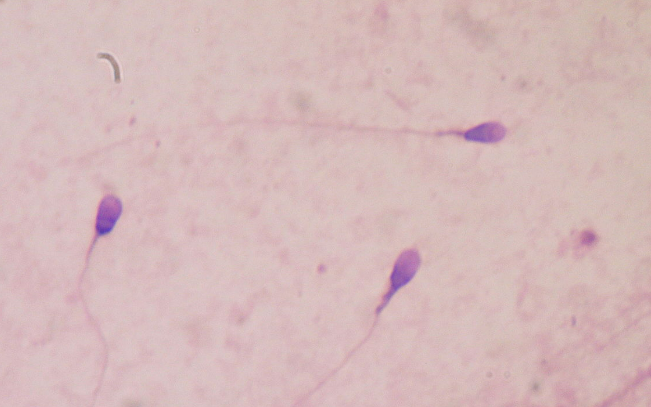Low sperm count and motility are linked to in utero "forever chemical" exposure in a study. PFAS, which are now present in almost all umbilical cord blood worldwide, interfere with the hormones necessary for the development of the testicles.

Forever Chemicals Altering Sperm Quality
According to a recent peer-reviewed Danish study, a mother's early pregnancy exposure to harmful PFAS "forever chemicals" might result in a subsequent reduction in sperm quantity and quality in her kid.
Future "reproductive capacity" is largely defined as testicles developing in utero during a pregnancy's first trimester, according to study co-author Sandra Sgaard Tttenborg of the Copenhagen University Hospital. PFAS, or per- and polyfluoroalkyl substances, disrupt hormones and fetal development.
Sgaard Tttenborg stated that it is logical that exposure to chemicals that imitate and interfere with the hormones involved in this sensitive process might impact the quality of semen in later life.
A group of over 12,000 compounds known as PFAS is frequently used to make thousands of items resistant to heat, water, and stains. They are called "forever chemicals" since they build up in people and the environment and do not decompose independently. According to a growing body of research, they are associated with major health issues like cancer, birth abnormalities, liver disease, renal illness, and lowered immunity.
The study, published in Environmental Health Perspectives on Wednesday, looked at the reproductive hormones and semen characteristics in 864 young Danish men born to mothers who gave blood samples during the first trimester of their pregnancies between 1996 and 2002.
Expanding on Previous Research

The study expands on earlier research that identified related problems. Still, it is the first to check for exposure to more than two PFAS chemicals and to evaluate exposure during early pregnancy, which is the "primary developing stage" of the male reproductive organ.
Seven of the 15 PFAS chemicals that were detected in the mothers' blood were at levels high enough to be used in the research.
Mothers exposed to greater amounts of radiation more commonly gave birth to adult males with lower sperm counts and higher quantities of immotile sperm, or sperm that could not swim. The quantity of non-progressive sperm-sperm that do not swim straight or in circles-was also raised by this exposure. Infertility may result from either problem.
Extremely Potent Substance
The pervasive substances, thought to be in 98% American blood, can pass the placental barrier and build up in the developing embryo. PFAS was discovered in all 30,000 samples studied in a recent review of 40 investigations of umbilical cord blood from around the world.
Worldwide infertility rates are rising, frequently for unknown causes, according to Sgaard Tttenborg.
She continued, "The findings from our investigations are crucial in that jigsaw. The more we know, the more we can prevent it, which is crucial.
For similar news, don't forget to follow Nature World News!
© 2025 NatureWorldNews.com All rights reserved. Do not reproduce without permission.





